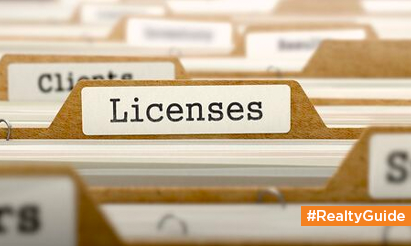Key legal checklist for buying a property
Property investments are high-risk investments, and any blunder involved in the making can cost the buyer a lot of money. As a result, it is critical for a buyer to proceed with caution when reviewing the property documentation.
Surprisingly, while the land is a tangible resource, who owns it cannot be determined solely by a claim of ownership; such a claim should be supported by many documents proving the property’s ownership position.
The buyer can guarantee that the investment gives comfort and safety by getting adequate legal assistance, scrutinizing paperwork, and verifying vital facts about the property.
- Confirm the seller’s identification.
In the same way that the buyer must confirm the property’s ownership, the buyer should also confirm the seller’s identification and any particular circumstances that control the seller’s chance to transmit the property. For example, consider the following scenarios:
- If the seller is an individual, his or her residence status and nationality, as well as whether or not government approval is necessary for the transaction, are all factors to consider.
- In the event of jointly owned properties, all owners must be identified.
- When the seller is a corporation, trust, partnership firm, society, or other similar entity. The entity’s constitution papers are required to establish its eligibility to own and transfer property, as well as to ensure that the person who executes and registers the sale deed is properly authorised.
- In which the property is owned by a juvenile or an individual of unsoundness of mind, instructions from the relevant court allowing the sale of the property and assigning a guardian.
Papers to verify before buying a plot include Aadhaar numbers, PAN numbers, passports, income tax returns, salary certificates, and other documents that can help you determine the seller’s identity.
Authorization for conversion and land use
Conversion of property for non-agricultural usage becomes increasingly important as cities grow and revenue lands merge with urban conglomerates, because numerous state laws prohibit non-agriculturists from purchasing agricultural property. Moreover, the buyer must review the Master Plan to ensure that the land is being built in line with the planning authority, which may include housing, industrial, commercial, public/semi-public, parks and gardens, and so on. Seeking directives from the Town Planning Authority for change of land use is required where actual use differs from the notified zoning. Therefore keep such points in mind when buying land.
- Authorizations for construction
So, let’s look at the paperwork that must be examined before purchasing a piece of land with a built-in structure. When purchasing an apartment or land with a built structure, the buyer could perhaps review the building plan / layout design approval from the local municipal authorities, as well as authorizations granted by the government, statutory, and state regulators for basic infrastructure such as water, sewer systems, power generation, climate clearance, and fire protection permission, among other things.
It is imperative to seek printouts of NOCs from various authorities, like the Pollution Board, Environment Department, Sewage Board, and Traffic and Coordination Department, which constitute the ‘indication of rejection’ or first permit needed to construct development, from the builder.
- Proof of Occupancy
Prior to selling the property, the seller must get an initial approval from the relevant agency. Use of the property before gaining tenancy may lead to penalties under the appropriate building bye-laws, as well as the danger of the property being demolished.
- Payment history of taxes
Property tax arrears are a levy on the property, limiting its commercial viability. As a result, the buyer must check with the local government to ensure that the seller has not lapsed on property tax payments.
Inquire about the seller’s receipts for all electricity bills. Please keep in mind that after the property is transferred into your name, you will be responsible for all outstanding dues, whether electric or otherwise.
- Entrance to the land and a physical survey
The buyer can perform a physical examination inspection to validate the property’s size and dimensions. In the event of land, it’s a good idea to establish and differentiate the property’s boundaries and access points, as well as any other structural features that can make it difficult to enjoy the property.
Disclaimer: The views expressed above are for informational purposes only based on industry reports and related news stories. PropertyPistol does not guarantee the accuracy, completeness, or reliability of the information and shall not be held responsible for any action taken based on the published information.




